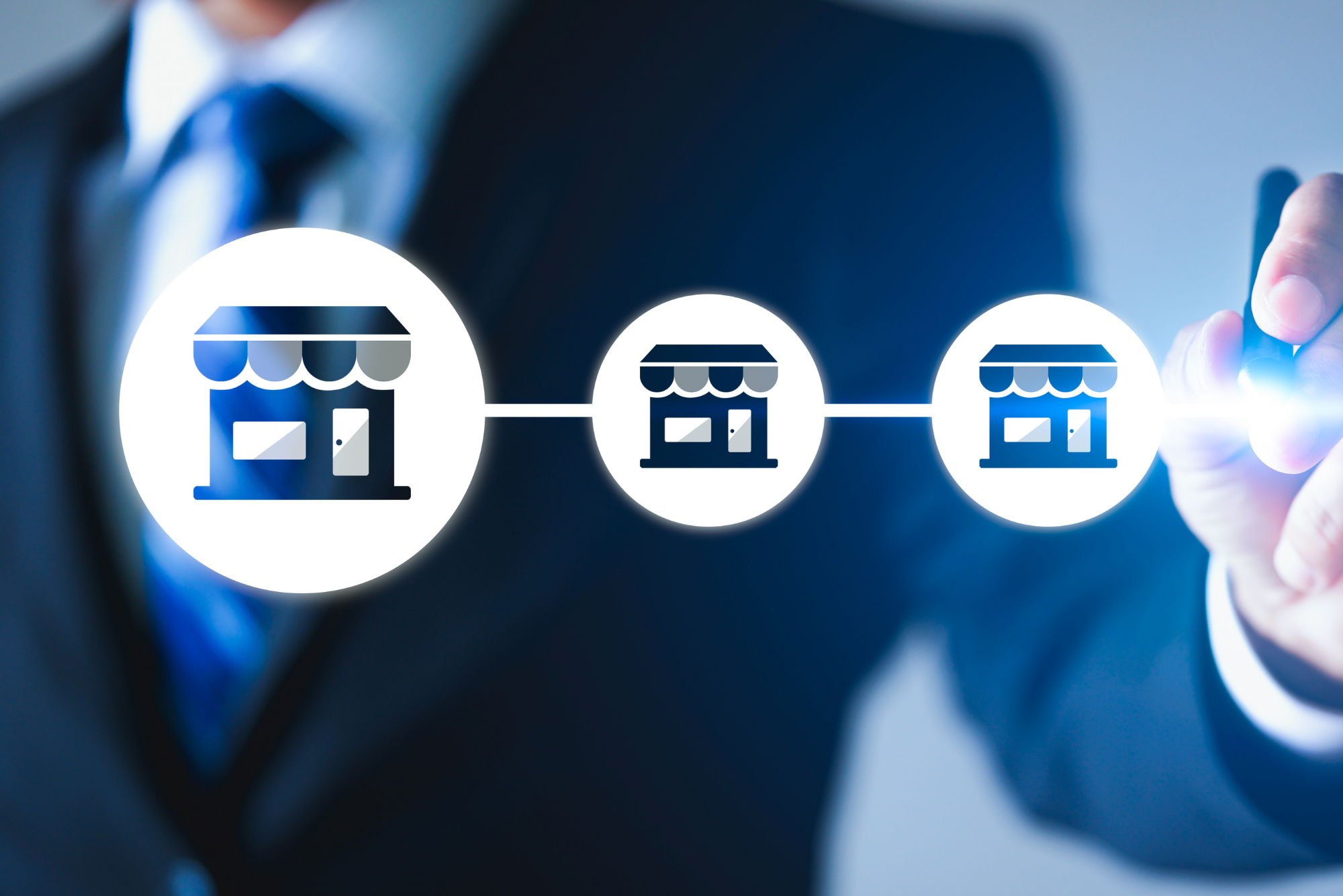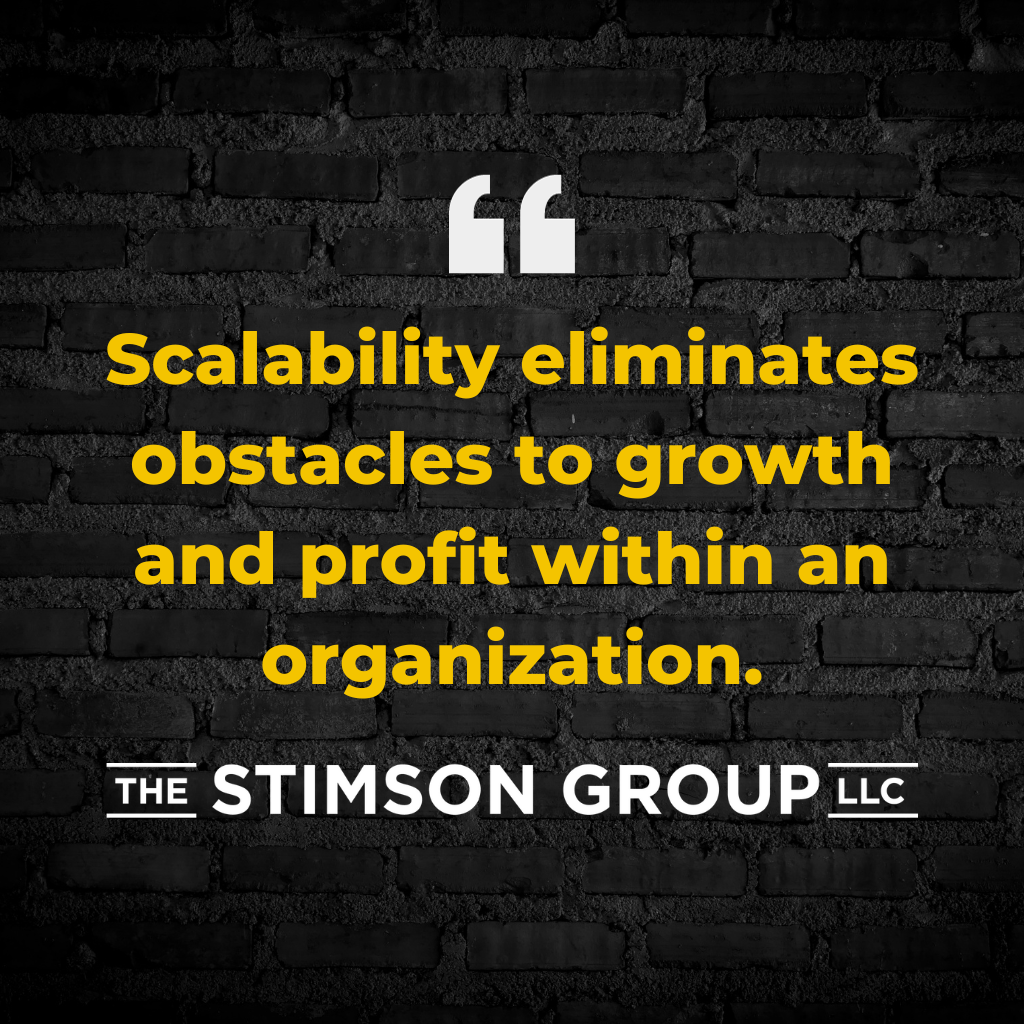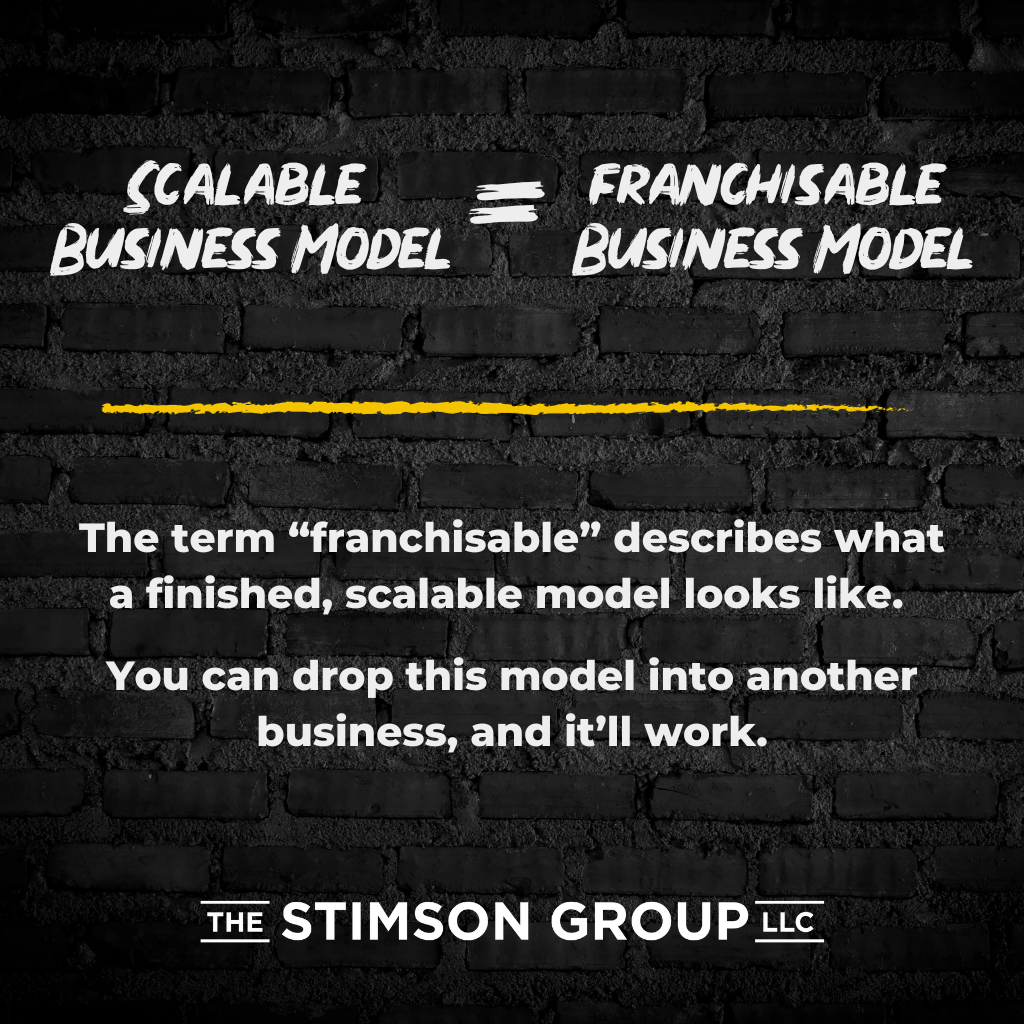
“Why do I need to be scalable?”
I hear this question a lot. In answering it, I can go on about benefits like profitability and making life easier, but here’s the most straightforward answer: Scalability eliminates obstacles to growth and profit within an organization.
That way you, the owner, have more control over your business, which means you can grow it to whatever size you want. You don’t have to change processes to grow; you don’t have to change processes to stay the same size. Your model works at whatever size you choose.
In other words, scalability enables you to work at your comfort level. You can make more money with the same revenue, and you don’t need to grow your business or hire more employees if you don’t want to. That’s one form of control.
Another form of control is being able to ride economic ups and downs. When your business is scalable, you’re less afraid of bad months and less worried about good months. You can operate with less risk, which makes it easier for you to focus on the important things instead of things outside of your control.
Being in control also means you can expand your empire, whatever that term means to you. You can add products and services; you can set up another line of business and use the same model; or you can take on new clients or new market areas. The sky is the limit.
Maybe your idea of leveraging a scalable business model is to grow through acquisition. You can add other companies, take in new markets, and adapt them to your business model because you know it works. That beats trying to figure out how to make your model and the new model work together (square peg, meet round hole).
Whether you choose to exercise this next bit of control or not, scalability also puts you in a much better position to sell your business. It becomes much easier to explain how your business works, how consistently it makes money, what it would take to grow, and what it would take to become profitable. These are great conversations to have, regardless of your exit plan.
In short, you have a franchisable business model — a model that maintains profits through the ups and downs of our seasonal and sometimes economically unpredictable industry.

The Franchisable Business Model
When we think of franchises, we often think of brick-and-mortar businesses that duplicate the entire business within each franchise. That’s true for retail businesses, but we’re in a service industry.
When I hear the word “franchise,” I think of Pizza Hut. (I did Pizza Hut franchisee holder meetings for around two decades.) Pizza Hut franchises are businesses you can buy and start without knowing anything about them. You’re handed something that already works, with systems and processes built in.
Isn’t that ideal for your business as well? If your business is franchisable and you want to expand, all you need to do is add resources. You don’t have to change your fundamental processes.
If you want to sell more hamburgers, you add more grills, more points of sale, more counter space, more tables in the restaurant, and you market more. If your business model is franchisable, that means it’s duplicatable. That takes a lot of pressure off you.
A franchisable business means you have systems and processes that allow your key personnel to assume roles in selling, planning, and administration. The execution — the outputs you’re selling to your customers — is so well-defined and planned that you can outsource as much of it as you want.
This allows you to add revenue painlessly because you’ve got a huge depth of resources and processes. It also allows you to survive economic ups and downs with less overhead. A bad month or even a bad year isn’t going to be nearly as painful. That’s what scaling is all about.
At the end of the day, the term “franchisable” describes what a finished, scalable model looks like. You can drop this model into another business, and it’ll work.

Franchising Is Scalable Control
Having a franchisable model gives you all this control. Franchisable models are inherently scalable, and franchisability is a benefit of being scalable. It allows you to choose your size, be more resilient, expand your empire, and use opportunities more effectively.
Being franchisable means you can expand your business geographically without duplicating all the resources in each location. You’re able to centralize geographically agnostic services that work throughout the organization. It’s a great way to expand your empire to new clientele and markets.
When your business is franchisable, it’s franchisable throughout the organization, not just from the outside looking in. If you get inside the organization and look at your selling process, you’ll find that every role in selling is franchisable. If you want to add capacity, all you need to do is add a role. If the role already exists, just add another input to it.
Yet another benefit of being franchisable is that growth is defined. How do you grow? You add capacity. Define the capacity, define growth, and you have a franchisable role that exists no matter what size your organization is.
Bottom line: Scalability means having the ability to add capacity at will. Do that, and you’ll have a franchisable business.





Leave a Reply